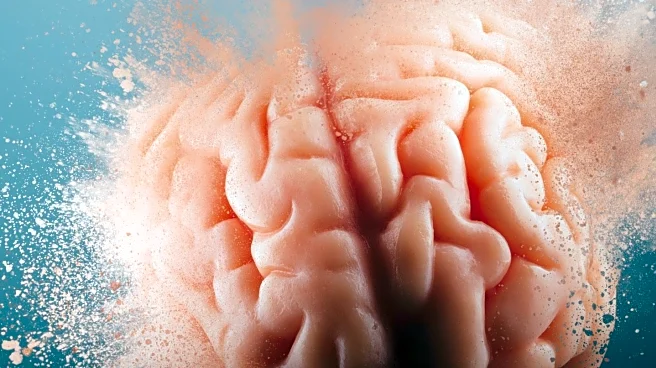What's Happening?
A recent opinion piece discusses the impact of witnessing violence on adolescent brain development, drawing on research from the University of Southern California's Center for Affective Neuroscience. The study highlights how exposure to violence can lead to a decrease in gray-matter volume in the anterior cingulate cortex, affecting stress processing, emotional regulation, and social connection. However, the research also identifies transcendent thinking as a potential buffer against these negative effects. This cognitive skill allows adolescents to reflect on social issues, consider multiple perspectives, and find meaning in their experiences, promoting resilience and adaptation.
Why It's Important?
The findings underscore the importance of addressing the psychological impact of violence on young people, particularly in educational settings. By fostering transcendent thinking, educators can help students develop resilience and a deeper understanding of complex social issues. This approach not only supports mental health but also encourages civic engagement and critical thinking. The research has implications for public policy and educational practices, highlighting the need for programs that integrate neuroscience insights into curricula to support adolescent development and well-being.










